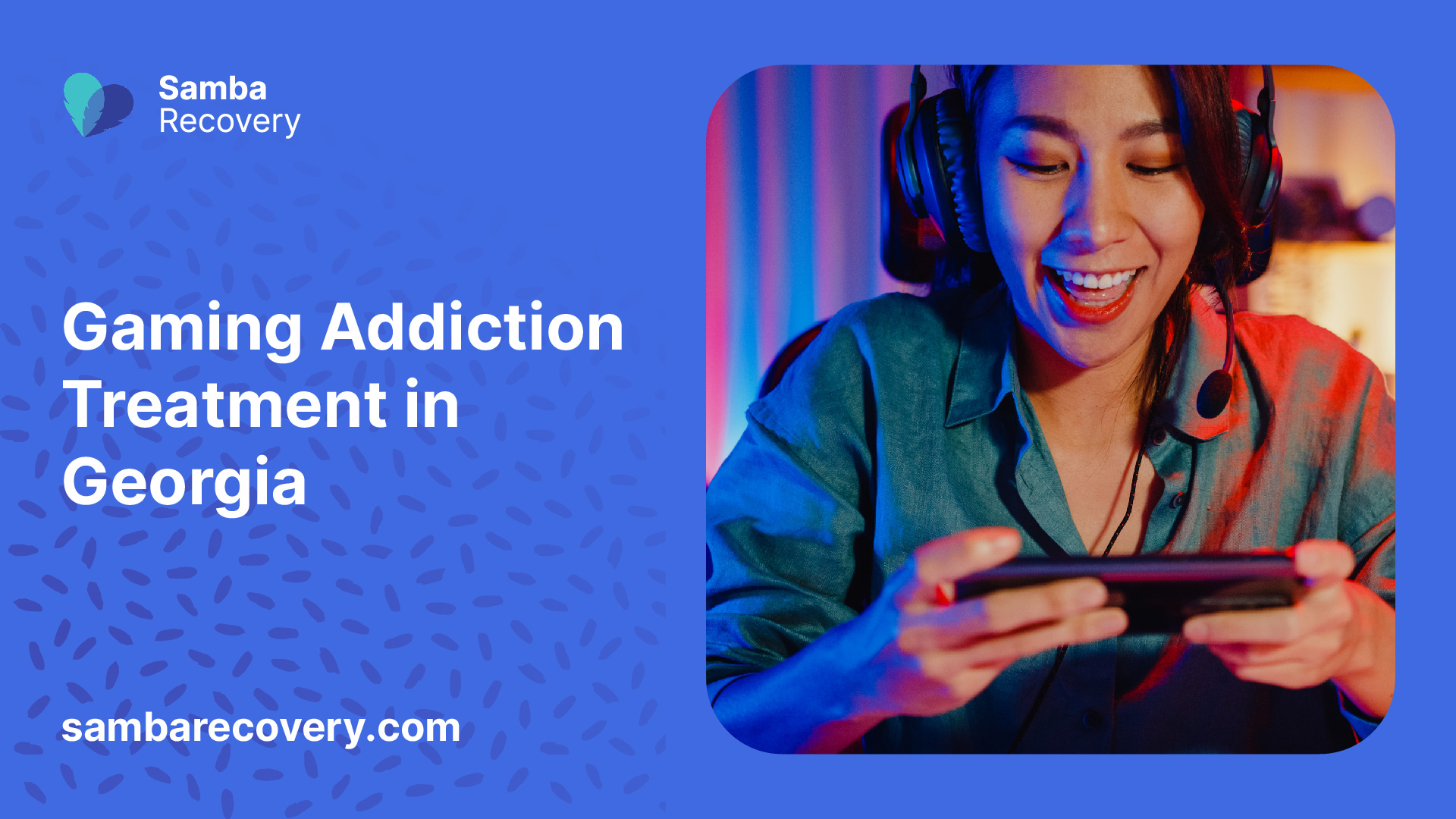
Understanding Gaming Addiction
Definition and Characteristics
Gaming addiction, also known as video game addiction, is considered a clinical impulse control disorder. This condition is characterized by an overwhelming urge to play video games to the extent that it interferes with daily life. Similar to addiction to substances, individuals with gaming addiction require more of the source over time, can experience withdrawal symptoms, and may play games to alter their mood.
Key characteristics of gaming addiction include:
- An obsessive preoccupation with video games at the expense of real-life activities.
- The need to spend increasing amounts of time playing games to achieve the same level of satisfaction.
- Withdrawal symptoms such as irritability, anxiety, or depression when not playing.
- Using gaming as a way to escape from negative emotions or real-life problems.
While gaming addiction is not currently recognized as an addictive disorder in the Diagnostic and Statistical Manual of Mental Disorders (DSM-5), it shares many characteristics of addictive behavior.
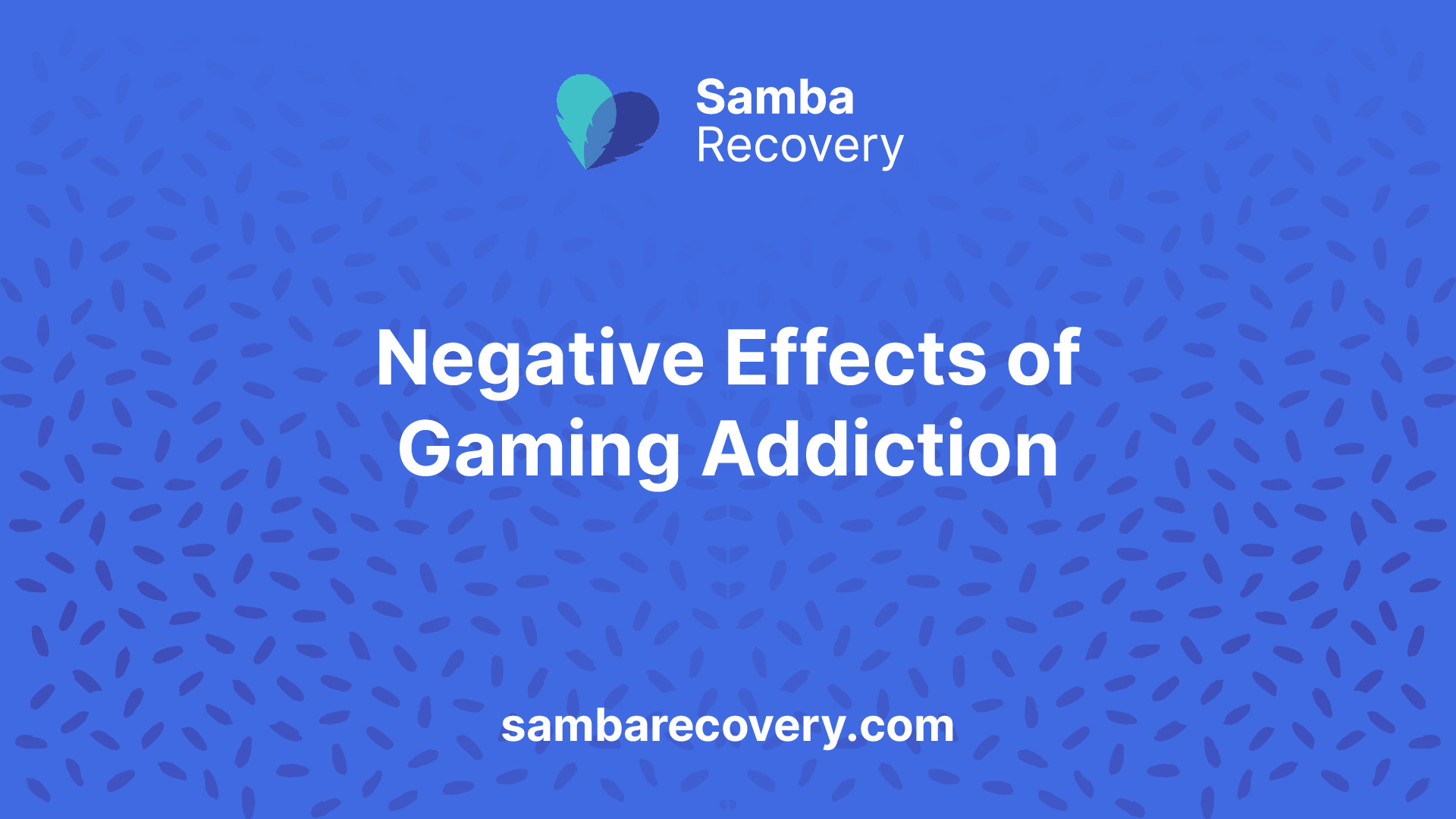
Negative Effects of Gaming Addiction
Gaming addiction can have numerous negative effects on an individual’s life, impacting their physical, mental, and social well-being. Some of the most common negative effects include:
- Withdrawal from Responsibilities: Addicts may neglect work, school, and other responsibilities to spend more time gaming.
- Deteriorating Relationships: Excessive gaming can lead to strained relationships with family and friends due to the lack of time and attention given to these relationships.
- Health Issues: Prolonged gaming sessions can result in poor personal hygiene, hormonal disturbances, and repetitive use injuries such as “video gamer’s thumb” [1].
- Mental Health Consequences: The addiction can cause or exacerbate mental health issues such as anxiety, depression, and feelings of isolation.
| Negative Effects | Description |
|---|---|
| Withdrawal from Responsibilities | Neglecting work, school, and other responsibilities. |
| Deteriorating Relationships | Strained relationships with family and friends. |
| Health Issues | Poor personal hygiene, hormonal disturbances, repetitive use injuries. |
| Mental Health Consequences | Anxiety, depression, feelings of isolation. |
The addictive quality of gaming is often attributed to the release of dopamine triggered by the process of playing and winning video games. This neurotransmitter is also involved in other addictive activities such as alcohol or drug abuse. Understanding these negative effects is crucial for recognizing the need for effective treatment approaches to combat gaming addiction.
Treatment Approaches
Effective treatment for gaming addiction involves various strategies aimed at helping individuals regain control over their lives. Here, we explore the primary treatment approaches: counseling and therapy, cognitive behavioral therapy (CBT), and inpatient vs. outpatient treatment.
Counseling and Therapy
Counseling and therapy are central to treating gaming addiction. These methods involve talk therapy (psychotherapy) aimed at identifying and changing troubling emotions, thoughts, and behaviors related to gaming. Treatment can include individual therapy, group therapy, and family or marriage counseling. Family involvement is crucial as it helps build a support system and address any underlying family dynamics contributing to the addiction [2].
Cognitive Behavioral Therapy (CBT)
Cognitive Behavioral Therapy (CBT) is widely recognized as one of the most effective treatments for gaming addiction. This form of mental health counseling teaches individuals how to replace obsessive thoughts about gaming with healthier behaviors. CBT focuses on behavioral modification, guiding individuals to develop healthier coping mechanisms and reduce symptoms of depression related to gaming addiction.
| Therapy Type | Purpose | Effectiveness |
|---|---|---|
| Individual Therapy | Personal counseling to address specific issues related to gaming addiction | High |
| Group Therapy | Shared experiences and support from others facing similar challenges | Moderate to High |
| Family Therapy | Involves family members to support recovery and address underlying issues | High |
| Cognitive Behavioral Therapy (CBT) | Focuses on changing thought patterns and behaviors | High |
Inpatient vs. Outpatient Treatment
The choice between inpatient and outpatient treatment depends on the severity of the gaming addiction and the individual’s specific needs.
Inpatient Treatment involves staying at a treatment facility where individuals receive round-the-clock care and support. This setting is beneficial for severe cases of gaming addiction where constant supervision and a structured environment are necessary [1].
Outpatient Treatment, on the other hand, allows individuals to continue with their daily lives while attending therapy sessions. This option is suitable for those with less severe addiction or those who have completed an inpatient program and need ongoing support.
| Treatment Setting | Description | Suitability |
|---|---|---|
| Inpatient Treatment | Residential care with constant supervision | Severe addiction |
| Outpatient Treatment | Regular therapy sessions without residential stay | Mild to moderate addiction |
Effective gaming addiction treatment in Georgia encompasses various approaches tailored to the individual’s needs. By understanding and utilizing these methods, individuals can overcome gaming addiction and lead healthier, more balanced lives.
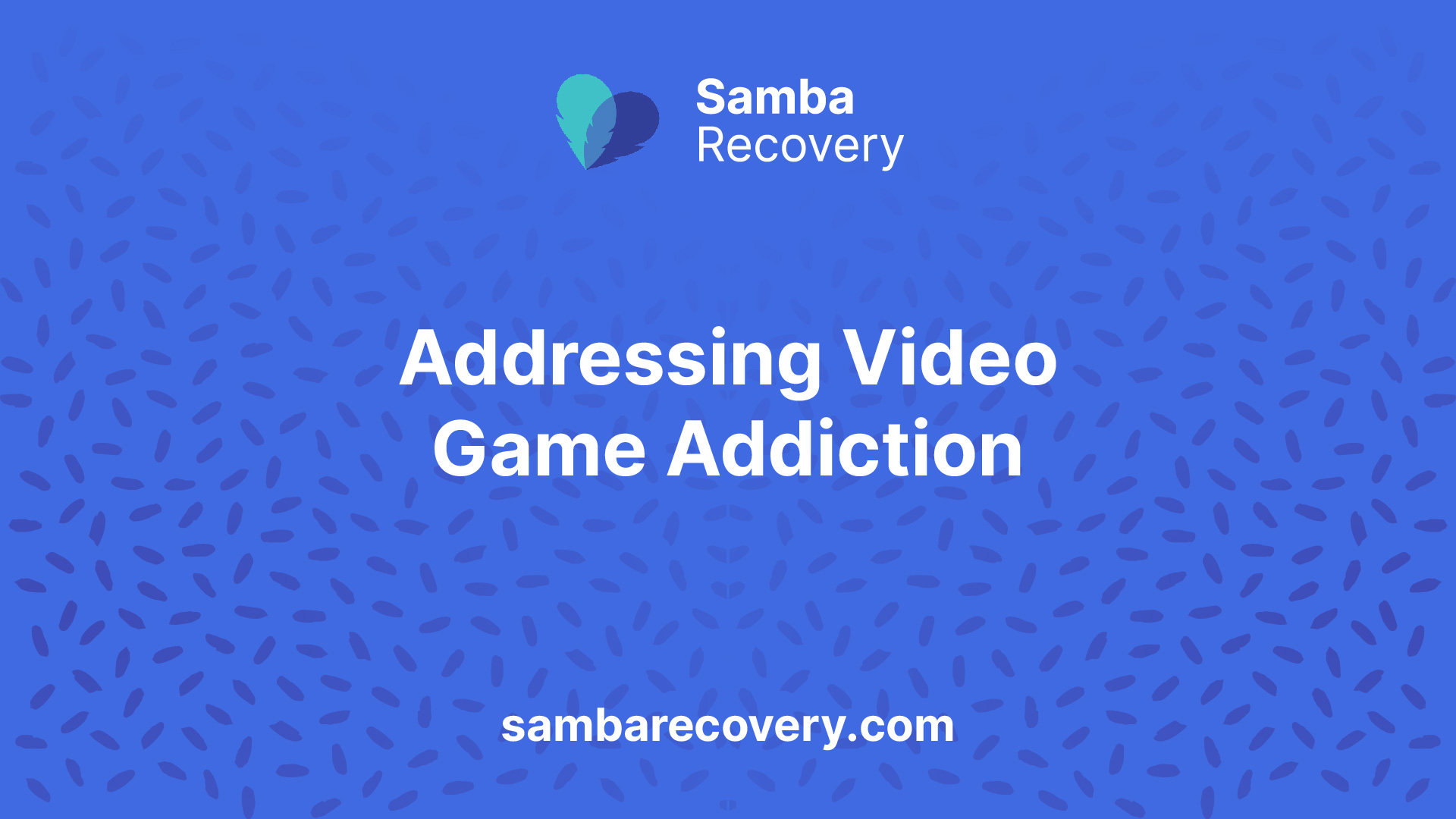
Addressing Video Game Addiction
Addressing video game addiction effectively involves a multi-faceted approach that includes family involvement, professional help, and early intervention. These elements are crucial for successful treatment and long-term recovery.
Involving Family in Treatment
Involving family members in the treatment process can significantly enhance the effectiveness of gaming addiction treatment. Therapists can guide parents on setting appropriate limits on their child’s gaming time, which can be challenging to enforce on their own. Family therapy aims to create a supportive environment that encourages healthy behaviors and communication.
| Benefits of Family Involvement | Description |
|---|---|
| Support System | Family provides emotional and practical support during recovery. |
| Consistent Monitoring | Parents can help monitor and regulate gaming time. |
| Educational Support | Family members can learn about addiction and coping strategies. |
Seeking Professional Help
Seeking professional help is essential when gaming time becomes excessive and starts to impact daily life negatively. Consulting a doctor, therapist, or pediatrician is advised for individuals or parents who notice problematic gaming behaviors. Professional help can provide a structured treatment plan tailored to the individual’s needs.
| Professional Help Options | Description |
|---|---|
| Psychotherapy | Talk therapy to address underlying emotional and behavioral issues. |
| Cognitive Behavioral Therapy (CBT) | Helps change troubling thoughts and behaviors. |
| Dialectical Behavior Therapy (DBT) | Focuses on emotional regulation and coping strategies. |
Importance of Early Intervention
Early intervention is crucial in preventing the escalation of gaming addiction. Identifying and addressing problematic gaming behaviors early on can lead to more successful outcomes. The main treatment for video game addiction is talk therapy, which helps individuals identify and change troubling emotions, thoughts, and behaviors.
| Importance of Early Intervention | Description |
|---|---|
| Prevents Escalation | Early treatment can prevent severe addiction. |
| Better Outcomes | Early intervention often results in more effective treatment. |
| Reduced Impact | Minimizes the negative impact on social, educational, and occupational functioning. |
By involving family, seeking professional help, and intervening early, individuals struggling with gaming addiction can receive the support and treatment needed to overcome their addiction and lead healthier lives.
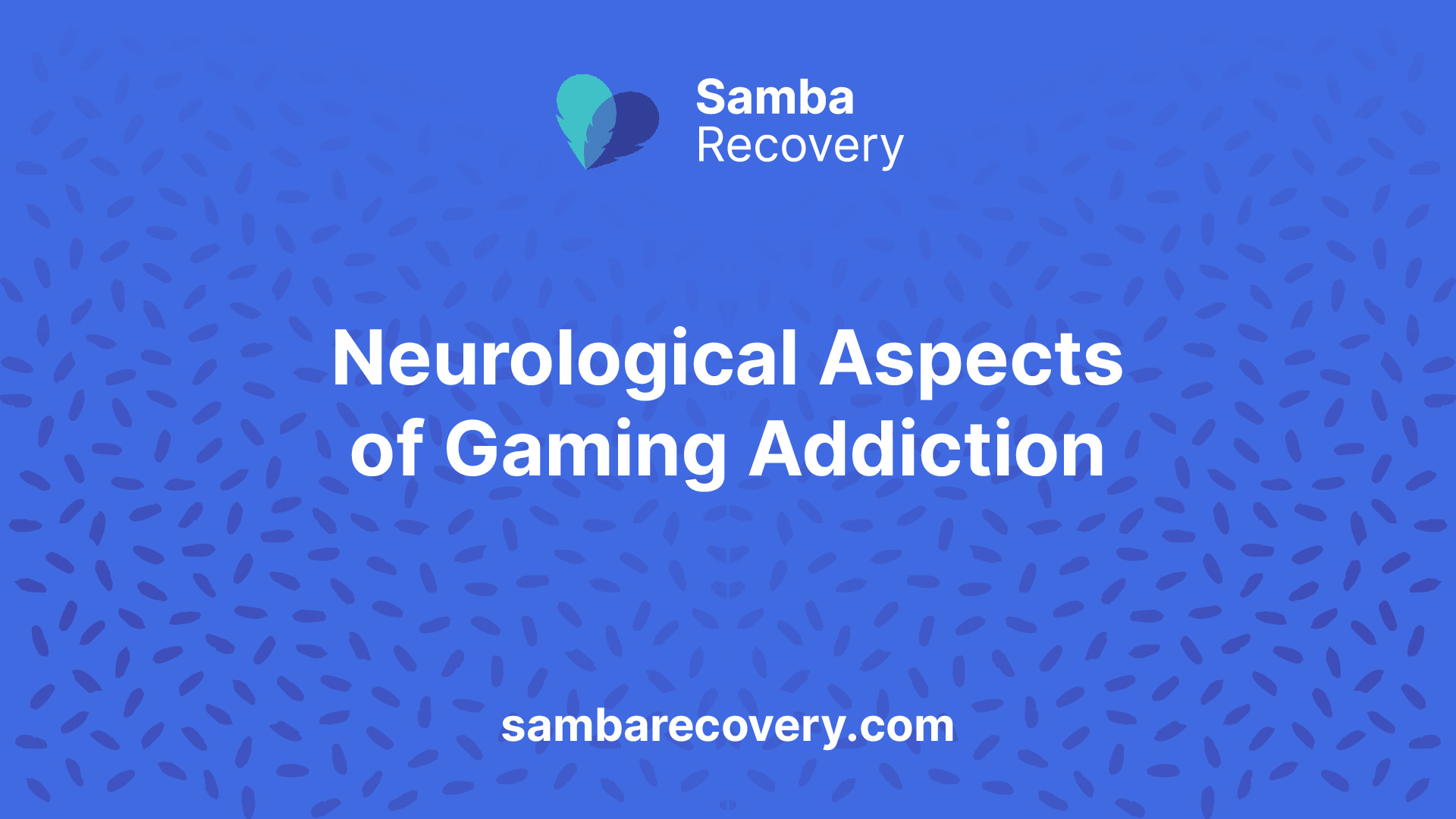
Neurological Aspects of Gaming Addiction
Dopamine Release in Gaming
Gaming addiction is often linked to the release of dopamine, a neurotransmitter associated with pleasure and reward. When a person plays and wins video games, dopamine is released in the brain, similar to what occurs in other addictive activities like alcohol or drug abuse. This release of dopamine creates a sense of euphoria and reinforces the behavior, making it difficult for individuals to stop playing.
| Activity | Dopamine Release Level |
|---|---|
| Normal Daily Activities | Moderate |
| Playing Video Games | High |
| Winning in Video Games | Very High |
Similarities to Substance Use Disorders
Recent neurological research has shown similarities between the brains of individuals with video game addiction and those with substance use disorders. The process of playing and winning video games can trigger a release of dopamine, much like the response seen with substance abuse [3]. This dopamine release creates a rewarding experience, reinforcing the behavior and leading to compulsive gaming.
| Condition | Dopamine Involvement |
|---|---|
| Gaming Addiction | High |
| Substance Use Disorder | High |
| Gambling Disorder | High |
Brain Changes and Addiction
The addictive nature of gaming can lead to significant changes in the brain. Studies have shown that the release of dopamine during gameplay, especially when winning, can alter brain function in a manner similar to substance use disorders [6]. These changes can affect areas of the brain responsible for decision-making, impulse control, and reward processing.
| Brain Function | Impact of Gaming Addiction |
|---|---|
| Decision-Making | Impaired |
| Impulse Control | Reduced |
| Reward Processing | Enhanced |
Understanding the neurological aspects of gaming addiction is crucial for effective treatment. By recognizing the role of dopamine and the similarities to substance use disorders, healthcare professionals can develop targeted interventions to help individuals overcome their addiction and regain control over their lives.
Prevalence and Diagnosis
Statistics on Gaming Addiction
Gaming addiction, also known as Internet Gaming Disorder (IGD), affects a notable percentage of the population. According to research, the percentage of players who meet the proposed criteria for gaming addiction ranges between 1% and 9% of all gamers, both adults and children. It is more prevalent among boys and men than girls and women [4].
| Population | Estimated Prevalence (%) |
|---|---|
| General Gamers | 1 – 9 |
| U.S. Population | 1.7 – 10 (Cleveland Clinic) |
| Americans with Internet Gaming Disorder | 0.3 – 1 (Harvard Health Publishing) |
Diagnostic Criteria
Diagnosing gaming addiction involves identifying specific behavioral patterns. The American Psychiatric Association has proposed criteria for Internet Gaming Disorder in the Diagnostic and Statistical Manual of Mental Disorders (DSM-5). The criteria require experiencing at least five of the following symptoms within a year:
- Preoccupation with gaming
- Withdrawal symptoms when not gaming
- Tolerance, leading to the need to spend more time gaming
- Unsuccessful attempts to control gaming
- Loss of interest in other activities
- Continued excessive gaming despite problems
- Deceiving family members or others about the amount of gaming
- Using gaming to relieve negative moods
- Jeopardizing or losing significant relationships or opportunities due to gaming
Co-Occurring Conditions and Diagnosis
Gaming addiction often co-occurs with other mental health conditions. It’s common for individuals with gaming addiction to also experience issues such as anxiety, depression, and attention-deficit/hyperactivity disorder (ADHD). The co-occurrence of these conditions can complicate the diagnosis and treatment of gaming addiction.
| Co-Occurring Condition | Common Symptoms |
|---|---|
| Anxiety | Excessive worry, restlessness, fatigue |
| Depression | Persistent sadness, loss of interest, changes in appetite |
| ADHD | Inattention, hyperactivity, impulsivity |
Accurately diagnosing gaming addiction involves evaluating not only the individual’s gaming behavior but also any co-occurring mental health conditions. This comprehensive approach ensures that all underlying issues are addressed, leading to more effective treatment outcomes.
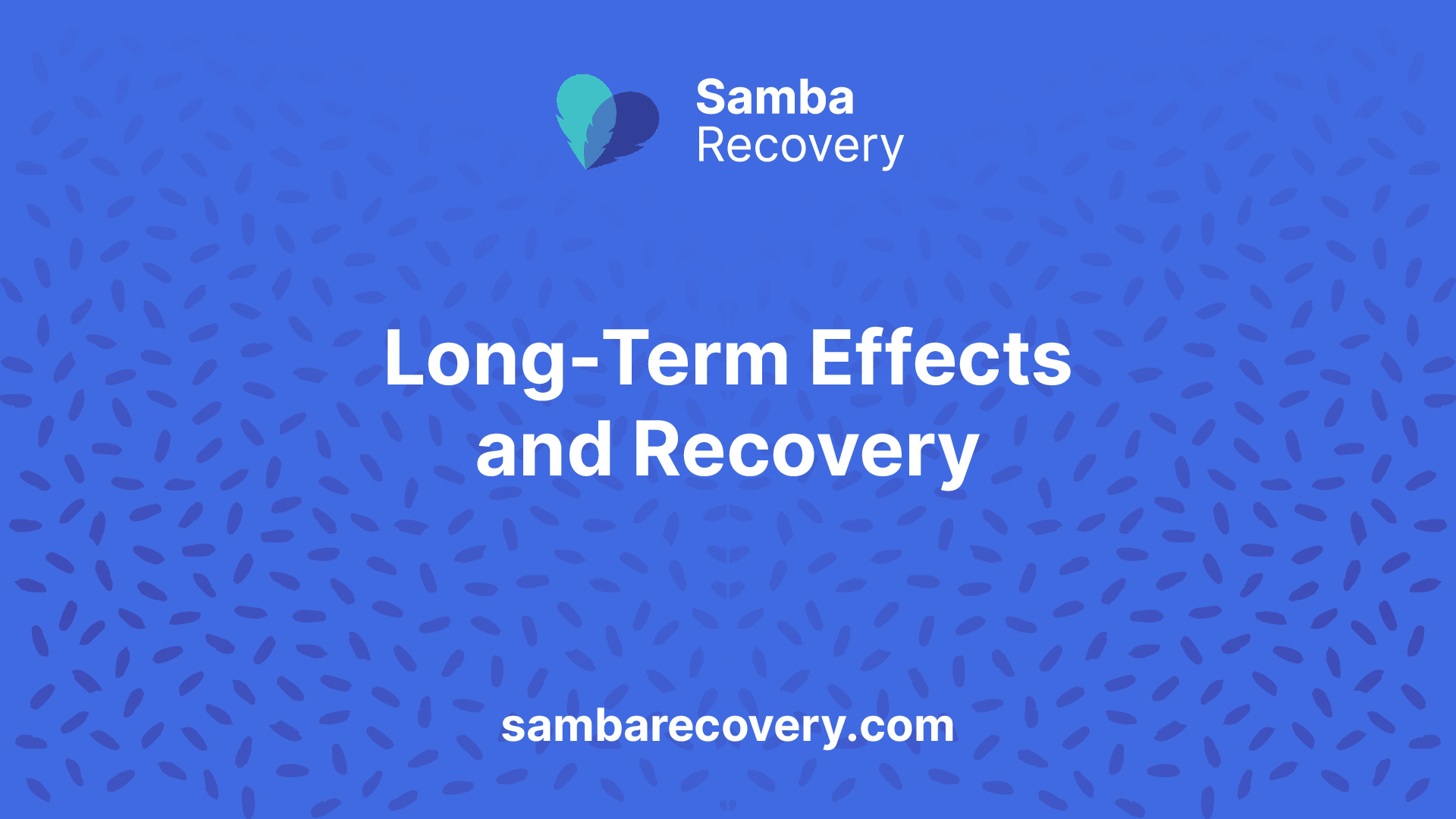
Long-Term Effects and Recovery
Mental Health Consequences
Gaming addiction, recognized by the World Health Organization (WHO) as a mental health disorder, can lead to a range of mental health issues. Individuals with gaming addiction often experience depression, anxiety, social isolation, and self-esteem problems [7]. Additionally, gaming addiction can result in:
- Sleep disorders such as insomnia and circadian rhythm disturbances [6].
- Increased aggression and irritability.
- Suicidal thoughts and behaviors in severe cases.
These mental health consequences underscore the importance of seeking timely and effective treatment for gaming addiction.
Social and Occupational Impairment
The negative effects of gaming addiction extend beyond mental health, significantly impacting an individual’s social and occupational life. Those struggling with gaming addiction may withdraw from work, school, and other responsibilities, leading to deteriorating relationships and poor performance in various areas of life. Key social and occupational impairments include:
- Poor personal hygiene and neglect of self-care.
- Hormonal disturbances due to irregular sleep patterns.
- Repetitive use injuries, such as “video gamer’s thumb.”
| Impairment Type | Description |
|---|---|
| Social Isolation | Withdrawal from friends and family |
| Work/School Performance | Decreased productivity and attendance |
| Physical Health | Poor hygiene, repetitive injuries |
These impairments highlight the pervasive impact of gaming addiction on an individual’s overall well-being.
Strategies for Coping and Recovery
Effective treatment for gaming addiction involves a combination of professional help, self-control, and lifestyle changes. Here are some strategies to aid in coping and recovery:
- Counseling and Therapy: Professional counseling provides a supportive environment to address underlying issues and develop healthier coping mechanisms. Cognitive Behavioral Therapy (CBT) is particularly effective in treating gaming addiction.
- Family Involvement: Engaging family members in the treatment process can provide additional support and accountability, fostering a supportive home environment.
- Setting Boundaries: Establishing strict limits on gaming time and prioritizing other activities can help in regaining balance in life.
- Healthy Hobbies: Encouraging participation in physical activities, social events, and other hobbies can divert attention from gaming and promote a more balanced lifestyle.
- Professional Intervention: Seeking help from addiction specialists and treatment centers can provide structured support and resources tailored to individual needs.
By implementing these strategies, individuals can work towards overcoming gaming addiction and rebuilding their lives. For those in Georgia seeking effective treatment, specialized rehab centers offer comprehensive programs designed to address the unique challenges of gaming addiction.
References
[1]: https://www.psychguides.com/behavioral-disorders/video-game-addiction/treatment/
[2]: https://americanaddictioncenters.org/behavioral-addictions/video-gaming-addiction
[3]: https://my.clevelandclinic.org/health/diseases/23124-video-game-addiction
[4]: https://www.webmd.com/mental-health/addiction/video-game-addiction
[]: https://www.ncbi.nlm.nih.gov/pmc/articles/PMC10065366/
[6]: https://www.health.harvard.edu/blog/the-health-effects-of-too-much-gaming-2020122221645
[7]: https://omegarecovery.org/the-impact-of-gaming-addiction-on-mental-health/






